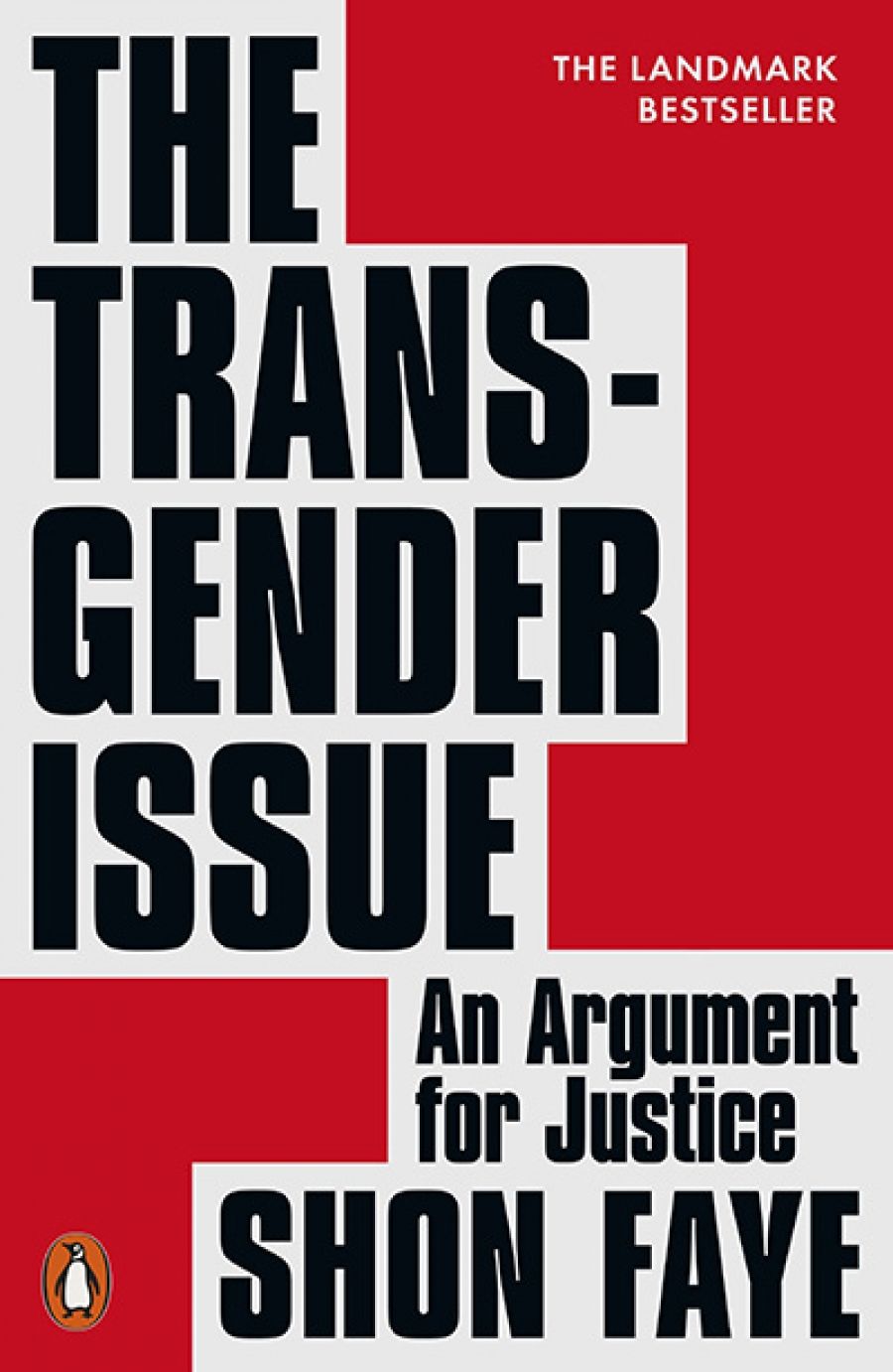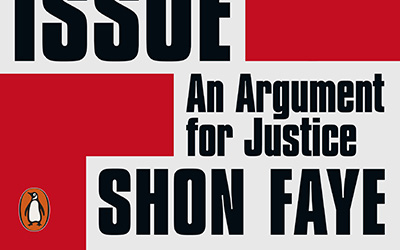
- Free Article: No
- Contents Category: Gender
- Review Article: Yes
- Article Title: A tapestry of transphobia
- Article Subtitle: Trans liberation's challenge to feminist politics
- Online Only: Yes
- Custom Highlight Text:
Shon Faye, trained as a lawyer before moving into advocacy work, brings her multi-disciplinary background into an unflinching look at where trans people in the United Kingdom are now, what lead them here, and where we go next. Consciously forgoing memoir, Faye takes a systematic approach to learning from history, clearly laying out the case for trans liberation.
In the opening pages, we learn of the suicide of Lucy Meadows, a young teacher and a trans woman. As Faye unpicks the immediate and circumstantial paths that lead to this event, we glimpse a tapestry of transphobia that, by the conclusion, is thoroughly unravelled. The introduction presents a litany of trans people (both alive and dead) bearing the brunt of endless scrutiny. The next seven chapters give voice to the conditions faced by trans people, and how we might glimpse liberation through the muck of a transphobic society.
- Featured Image (400px * 250px):

- Alt Tag (Featured Image): Elizabeth Duck-Chong reviews 'The Transgender Issue: An argument for justice' by Shon Faye
- Book 1 Title: The Transgender Issue
- Book 1 Subtitle: An argument for justice
- Book 1 Biblio: Allen Lane, $35 pb, 320 pp
- Book 1 Readings Link: booktopia.kh4ffx.net/MXd4A2
The first two chapters look at the experiences of trans people today and the crisis of trans healthcare facing the United Kingdom, showing that mental illness, homelessness, and suicidality statistics result not from trans identity itself but from media harassment, the ‘systemic and institutional discrimination’ of medical settings, and a lack of social support. Over the following three chapters, these experiences are intertwined with income inequality, workplace discrimination, sex work decriminalisation, and trans resistance to the carceral and police state, demonstrating the impossibility of separating liberation from these broader struggles. Faye invites us to consider the ways in which ‘trans people bend themselves to fit the way our society is ordered at present,’ and presents the provocation: ‘to what extent do the challenges trans people present to lawmakers expose fundamental flaws in the entire system?’
Previously only alluding to Britain’s ongoing spectre of transphobia, the book, in its final two chapters, looks into the history of the LGBT abbreviation, and the trans female body in particular as the ground of a bitter war of feminisms. Faye lays out the history as it is, not as an unswerving march to a better place, but as being fought for time and again – today’s feminism only existing because it has been hard won.
These chapters also finally answer the question threaded through the rest of the book: why is transphobia in the United Kingdom so much more virulent than elsewhere in the global north? While the rest of the book is significant, it is this section that makes for essential reading, stating the case of trans-exclusionary politics as part of a persistent and unexamined colonialist strain in contemporary feminism. This approach, based on the argument that an ever-changing category of female is at last fixed in place, has been used since the start of the feminist project to exclude poor women and women of colour, then lesbian and queer women, and now trans women, almost always along lines of what power and beauty standards colonialism has uplifted or rejected.
In one telling and hopeful anecdote, Faye recounts the rebuffing of the British anti-trans contingent by thousands of Irish trans and cis feminists, who publicly wrote, ‘we have had enough of colonialism in Ireland without needing more of it from you’.
The effects of the colonial project are felt and must constantly be reckoned with in Australia, where we can see the cultural echoes of what Faye contends with in our own media and political bubbles. While the book makes no mention of Australia’s trans struggle, the transphobes on our own shores are keenly and openly informed by the British playbook. It’s here that Faye’s legal background shines through, dismantling these transphobic arguments one by one with the words of their own feminist contemporaries, often with more grace than such hostility deserves.
The Transgender Issue sets out to accomplish a great deal, and almost always succeeds. When Faye’s writing does hesitate or qualify, it is to build capital and rapport with the reader that allows her to twist the pen in deeper when it is necessary, while gently drawing from us long held and harmful assumptions about trans people, the gender binary, and modern gendered existence. Opponents of trans people claim we are unreliable witnesses to our own truth, but in The Transgender Issue, Faye makes the case that our knowledge is in fact the most reliable source of information. She is clear that work by and for trans people leads the way, and comes to the fight prepared to show her working.
It’s refreshing to read a retelling of trans history stripped of the bullshit, managing to feel comprehensive yet lean. The book pulls no punches, but also does not hesitate to quote transphobic views in order to explain and expertly expose them for what they are. Though there were a couple of chapters where I felt like I had to surface for air every couple of pages, I always dived back in.
It makes sense that a book like this emerged from the profound transphobia in Britain, and yet it lifts itself above being simply a tit-for-tat retort, cutting through the misogyny and bigotry of the anti-trans outfit and of the carceral and gendered state. Faye is unequivocal: our goal must be liberation, not equality, and there is no liberation under capitalism. It’s a lot to demand, but Faye doesn’t flinch, writing ‘Trans people’s hope is proof that we are fully human.’
The titular transgender issue is shown to be not our identities, our bodies, or even our vocal antagonists, but the state, which refuses to question the origins of its capital and colonial power. Faye finishes by writing ‘my hope wrote this book’. This moment of candour is less a softening than a billowing flame in its demand for a better way of being, living, and flourishing.


Comments powered by CComment